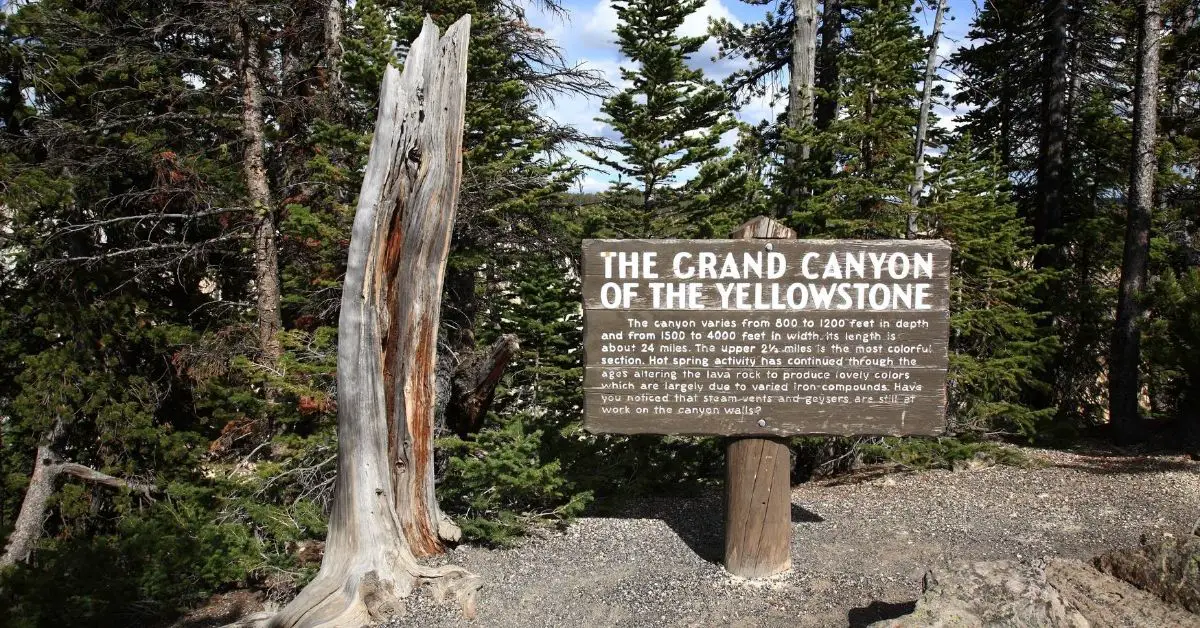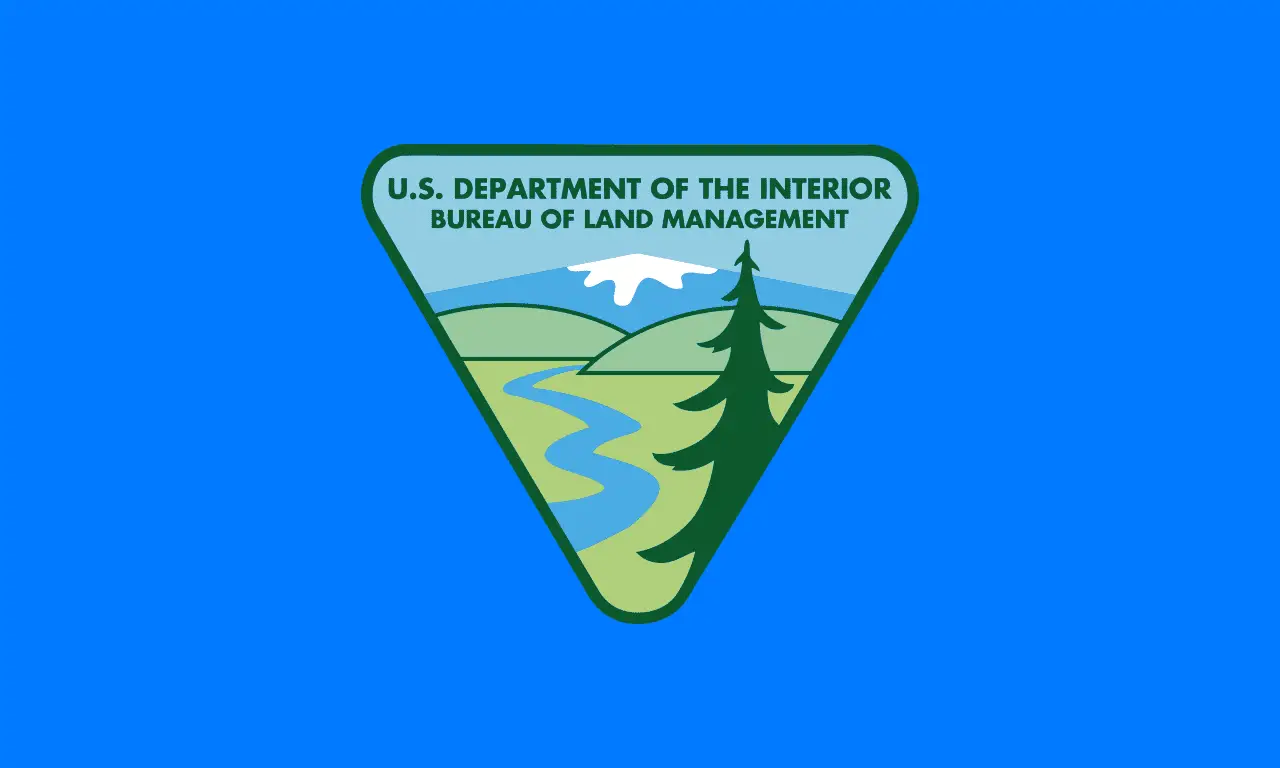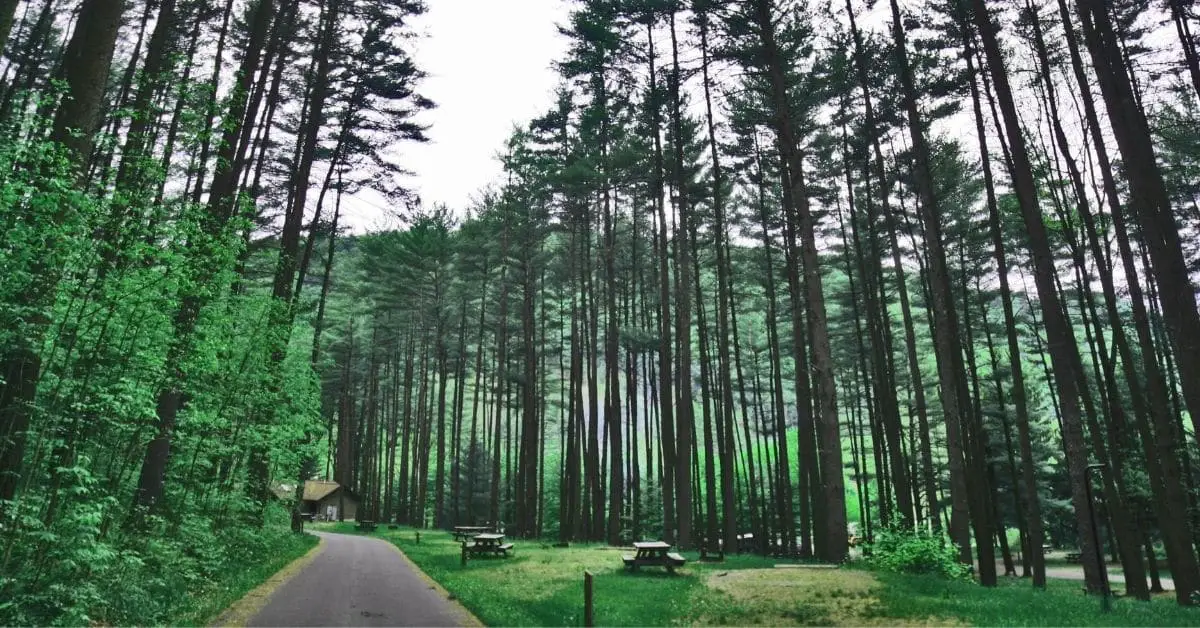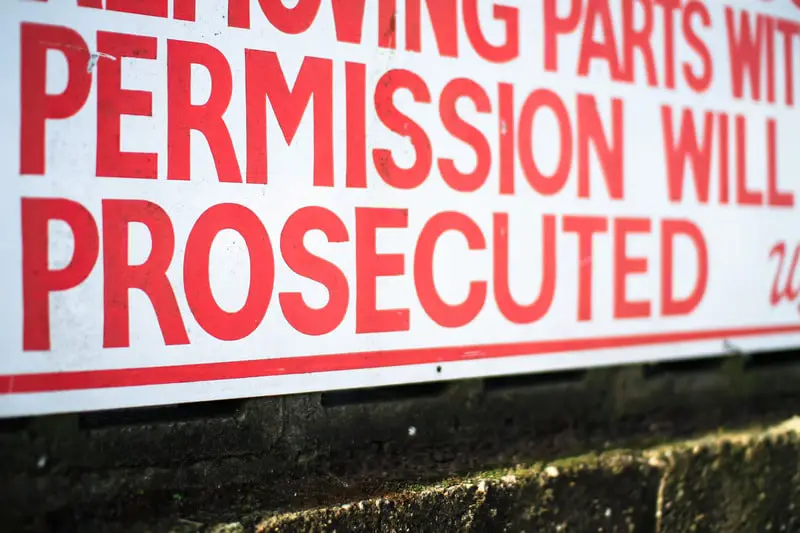If you decide to get into metal detecting, you need to know that you can’t just grab a metal detector and start searching. In many places, it isn’t legal to use a metal detector in public places without a permit. However, there are a few places where you can. Knowing the difference between the two can determine whether you find a trophy or get a fine.
Do you need a license to metal detect?
Metal detecting licenses are needed in many of the state parks where metal detecting is allowed, and these can be either sourced online or at the park’s office. Metal detecting licenses are used to keep up with significant finds that are made through metal detecting and also to help rehome any lost items that may be found while metal detecting.
The rules governing metal detection can be pretty complicated and vary from area to area. Keep reading to learn more about how to metal detect legally, where you can go, and what’s required to do it.
You Don’t Need a License Everywhere to Metal Detect
First things first—you don’t need a license to metal detect everywhere. If you are metal detecting on your property, for example, you are within your rights to search wherever you like, and you’re under no obligation to report your findings to the authorities unless you come across a dead body or a similar suspected crime scene.
You can also ask other people with private property for permission to go metal detecting on their land without having to get a permit to do it. The owner of the property may have conditions, like the condition that everything found must be shared, but you don’t need an official license as long as you have permission. (Source: Detecting Daily)
If you’re metal detecting on private property that isn’t your own, it’s usually smart to get written permission to go metal detecting just in case you get stopped by a curious party. It doesn’t hurt to have the paperwork to back you up just in case someone decides to hassle you about it.
In any case, it’s never a good idea to go metal detecting on private land without permission from the owner, no matter how remote or rural it is. Not only do owners in many areas have the right to have you prosecuted for trespassing if you get caught doing it, but others may do scarier things like chase you off with a gun even though you’re not hurting anyone.
So, even if you don’t need a license, it’s always better to metal detect with permission.
Digging Deeper: 13 Common Places to go Metal Detecting
Most National Parks Don’t Allow Metal Detecting

There are many national parks where metal detecting is not allowed at all, regardless of whether you have a metal detecting license or not. These are usually parks where the activities associated with metal detecting—such as digging—can potentially damage the natural environment in a protected space. Some of these areas are also historical sites, and getting caught metal detecting in a historical site can land you with a felony charge. (Source: National Park Service)
National and federal parks are also the most dangerous place to go metal detecting without permission since park rangers can and will arrest you for doing it. On federal grounds, metal detecting is usually illegal to the point that it’s not even a good idea to bring metal detecting equipment onto the property with you.
It’s also important to remember that if you’re trying to go metal detecting on the beach, you shouldn’t choose a beach that is set in a national park or wildlife reserve in most cases. That’s because you aren’t allowed to walk the dunes in many of these areas or disturb the area with digging due to wildlife preservation and environmental concerns.
The rules against metal detecting equipment in national parks count toward all the following metal detector types:
- Magnetometers
- Side-scan sonars
- All other metal detector equipment
Note: It is legal to bring a metal detector into a national park, but it cannot be assembled or functional and should be left in storage.
National parks are protected against metal detecting by the following national regulations:
- 36 Code of Federal Regulations 2.1(a)(7) – The possession or use of a metal detector magnetometer, side-scan sonar, other metal detecting device, or subbottom profiler is prohibited.
- Archeological Resource Protection Act of 1979 – All natural, cultural, and archeological resources are protected and may not be removed or disturbed. (Source: National Park Service)
So, what does that mean for metal detectors? It means that in almost all cases, national parks are a no-go area, and you can even land in jail for metal detecting there. Even if a local government doesn’t have legislation specifically against metal detecting, they will often fall back on the Archeological Resource Protection Act to enforce their claim on the land.
Is It Legal to Metal Detect on Land Owned by the Bureau of Land Management (BLM)?

The answer is yes—with a catch. Some BLM wilderness areas are part of the national park system and the Forest Service, and these lands would then fall under the rule and regulations of the park. However, in BLM lands that are hunting preserves and are not part of the national or state park system, it is legal to go metal detecting without a license. (Source: Metal Detecting Forum)
No matter where you decide to go metal detecting, it’s always a good idea to scout out the rules and regulations associated with that specific spot. The laws are so dramatically different from one park to the other that it’s always worth the trouble to find the laws for the area you want to relic hunt in.
Another type of BLM land that may not be open for metal detection is any BLM tract that contains a marked historical site. In that case, either the entire BLM or the historical site itself may be legally off-limits to the metal-detecting public.
As with national parks and state parks, the best plan for deciding whether to metal detect on a BLM tract is to look up the regulations for the tract. All these areas should be listed online and can be easily verified as legal or illegal to metal detect in.
If you can’t find the information you’re looking for by searching online, you can always call the Bureau of Land Management or the National Park Service directly.
Many State Parks Allow Metal Detecting

In contrast to many national parks, there are plenty of state-run parks across the United States that will allow the use of metal detectors as long as a permit for the detector is filed and a few conditions are met.
Here are some of the conditions that you’re likely to run into if you go metal detecting in a state park versus metal detecting on private property:
- Lost Items: In-state parks, you will usually be required to keep a log of any found objects and report your findings to the park in case the items you find correspond with reported lost items. If an item you find is found to be an object that someone else logged as lost with the park, you’ll be required to forfeit it to them.
- Archaeological or significant finds: If you find significant relics or archeological artifacts while metal detecting, like lost items, you will be required to report them to the state park along with the location that the object was found. If the object is deemed to have historic or archeological value, you might be required to surrender it to the authorities.
- Digging: Many state parks allow for metal detecting but have strict rules surrounding how deep you can dig for relics and for putting the dig site back the way you found it when you’re done. A lot of this is common courtesy, but following the rules can prevent you from earning yourself a ban from metal detecting in the park.
- Logged items: Even if you don’t find anything significant, in many places to receive and keep a metal detecting permit, you must submit an annual log of your findings. However, this rule is dependent on location.
As with many other public places, whether you can legally metal detect there without a license or permit is very dependent on local legislation. In some states, most of the state parks are metal detector friendly, but in others, those friendly sites are harder to find.
This is why it’s so important for you to look up the rules that pertain to the specific state park you want to metal detect in to find out exactly what requirements you need to meet to metal detect there legally.
Where is Metal Detecting Not Permitted?

Again, this comes down to the many rules and regulations that govern each area where metal detecting might be permitted. Some state parks may allow metal detecting, but only in certain areas of the park. Some beaches allow metal detecting, but only in certain spots along the beach where metal detecting will not pose a hassle to other visitors, or only from the low tide mark to the high tide mark.
In general, here are some areas where you either aren’t allowed to metal detect or are generally discouraged from doing so:
- Any federal battlefield: Going metal detecting for Civil War remnants on a battlefield may sound like a great time (and in theory, it is), but the truth is that many of these areas are protected by the Archeological Protection Act of 1979. That means not just anyone can go searching these areas for relics; you usually have to be a trained archeologist with special permission from the federal government to do so.
- Native American burial grounds: Ancestral curses and common decency of not graverobbing aside, the felony charges associated with getting caught metal detecting at a burial ground are not worth the chance of finding something interesting here.
- Active cemeteries: Not only does it not look good in general for the metal detecting hobby to go detecting in graveyards, but in most cases, it is illegal to take or dig up anything you find in one. Plus, it is just a creepy thing to do.
- Wildlife preserves: Many federally regulated wildlife preserves strictly forbid metal detection because of the damage that digging for relics can cause to native habitat. If you want to metal detect in an area with lots of wildlife to look at while you walk around, state parks are usually a lot more lenient about it as long as you have the proper permit or license.
- Crash sites and sites of natural disasters: Because of the potential trauma to living victims by uncovering the relic of deceased loved ones, metal detecting in airplane crash sites and other sites of mass death are not usually considered ethical by many metal detectorists and are sometimes even considered ghoulish. However, depending on where the crash site is, it may or may not be legally permitted to metal detect there.
In short, it’s a good idea to be respectful of the public or private lands that you’re going to be metal detecting on, and you should follow some basic rules of thumb:
- Don’t trespass. If you don’t know if you’re allowed to be in any area, don’t go there. If there’s a place that you want to metal detect that is on private land, your best bet is to go up to the other and ask permission. Many people don’t mind someone using a metal detector on their land as long as they promise to share anything significant that is found there.
- Make sure you know the rules about digging before bringing a shovel. Many public areas will allow metal detecting on the surface but will not allow excavations of any kind. This is to prevent damage to public property, and digging with a metal detector in these areas can usually land you a charge of vandalism if you get caught.
As long as you’re careful to know the actual regulations wherever you decide to metal detect, you should be safe from accidentally crossing the law. Ignorance of the law won’t keep you from getting fined or arrested if you get caught metal detecting in an illegal area.
What Happens if You Get Caught Metal Detecting Without a Permit?

What happens if you get caught metal detecting without a permit largely depends on exactly where you get caught doing it.
If you get caught illegally metal detecting in a state park by a ranger, the worst that is likely to happen to you is that you’ll be fined (sometimes with a hefty fine), and you may have anything you found while metal detecting confiscated. In some extreme cases, you may earn yourself a ban to the park.
With metal detecting in national parks and historical sites, the consequences of being caught illegally metal detecting are even harsher. In these areas, because of the environmental or archeological significance of the land, you may even get hit with a felony criminal charge.
Metal detecting on private land without permission is always illegal with or without a metal detecting permit. The owners of the land can charge the metal detectorist with criminal trespassing, and it doesn’t matter that you didn’t know you were on private land.
As the person with the metal detector, it’s your responsibility to be familiar with the law of the land before you start searching. Trespassing fines can range from a few hundred dollars up to thousands of dollars.
Digging Deeper: Beginners Guide to Metal Detecting
How to Find More Places to Metal Detect with or Without a Permit
If you’re at a loss to find new good places to hunt for relics with your metal detector, there are a few different ways you can find some new spots to metal detect in.
Here are some of them:
- Join a metal detecting club. These clubs often receive access to areas to metal detect that the general public isn’t allowed to metal detect in. While you’ll have to abide by some rules while metal detecting through a club (such as logging items), you’ll also get the chance to do it in some new locations.
- Offer to find something that someone lost. If you come across someone who has lost a ring or similar item in an area, you can often get a specific permit to try to locate that item that will allow you to search an area with a metal detector where it otherwise might not be permitted.
- Ask family and friends. You never know who might know someone with a private tract of land that might let you do a little digging if you ask the right people.
Even without an official permit, it’s usually pretty easy to find at least a few areas where you can test your metal detector out.
You Can Metal Detect in More Areas with a Permit
While some areas are completely forbidden when it comes to metal detection, having the proper permit can open up many more areas for you to metal detect legally. However, these permits are a privilege, not a right, and having one means obeying the rules and regulations of each area you decide to go detecting in.
Conclusion: Legal Metal Detecting – Do You Need a License?
Your best bet for getting the most out of your metal detector is to look up the law and make sure it’s on your side before you start hunting.
Thanks for reading and if you have any questions or comments please leave them in the comments section below. Until next time Happy Treasure Hunting!